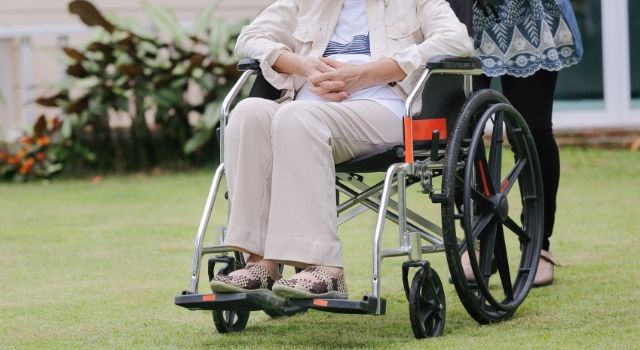
It’s Never Too Early to Draft a Will
February 18, 2022
Managing Finances for an Elderly Loved One
April 15, 2022As the Baby Boomer generation enters their twilight years, a large percentage of their children find themselves sandwiched between responsibilities for their own family and their aging parents.
For caregivers who live far from their loved one, this dynamic proves particularly difficult. Of the 34 million Americans who care for older family members, about 15 percent live an hour or more away from a person who needs care. An elder law attorney can advise both the elderly parent and the long-distance caregiver (LCD) about best practices for long-distance care and estate planning.
Often adult children don’t realize that their aging parent needs care or support until some kind of health crisis occurs. Long distances can compound this situation. When elderly parents live more than an hour away, problems may not be noticed immediately. Advance planning in these situations is essential. Ideally, the entire family should discuss responsibilities and make decisions in advance, including who will take the lead in care giving and where responsibilities lie.
In this planning stage, family members can determine the best options for care, including moving the parent closer to the caregiver or enlisting the help of in-home care services in the aging parent’s location.
Family members should also make decisions about individual LDC roles. Siblings may decide to split responsibilities. One sibling may be better with hiring and monitoring caregivers, while another may choose to coordinate legal planning.
Here are some things to keep in mind as aging parents and long-distance caregivers plan ahead:
Respecting the Aging Parent’s Wishes
Many aging parents may need help but want to remain as independent as possible, for as long as possible. It’s imperative that their wishes are taken into consideration with regard to where and how they live.
Contacting an Elder Law Attorney
An elder law attorney should be consulted to help with estate planning and to guide the family in legal decisions. It’s important that issues such as the power of attorney for health directives be decided while the parent is able to do so. Also important is establishing a legal power of attorney. An elder law attorney can also make sure that the elderly person’s property and financial means are protected, while still providing for their daily needs.
Organizing Financial Affairs
It’s important to know where all of the pertinent financial accounts are located and who has access to them. Long-distance caregivers should also be aware of email accounts for aging parents who may not have the ability or interest in checking their email in-boxes. Enlist your aging parent’s help in accessing usernames and passwords for financial and email accounts—and then take steps to keep them secure and private.
Learning about Resources in the Area
Long-distance caregivers should do research to learn about the resources in their elderly relative’s area to find the best in-home care and other services that will benefit them. Meals on Wheels, for example, can be enlisted to deliver ready-to-eat meals to an elderly parent.
Scheduling Family Visits
Family members who live a long distance from an aging parent should determine who will visit and how often. Family members sometimes decide to take turns and visit at regular intervals. As parents get older, family members may decide to shorten those intervals so that a family member visits more often.
When family members visit, they should consult with their aging parent in advance to develop a to-do list of things that need to be taken care of while the family member is on site. They can include such tasks as helping to file taxes, doing house repairs and maintenance, and carrying out landscaping chores.
Becoming the caregiver for an elderly parent is challenging. In cases where the caregiver lives a significant distance from the parent, the situation can be even more of a challenge. An elder law attorney is an essential element in a long-distance caregiving plan. Contact us today for more information about how we can help you put together a long-distance caregiving plan for your loved one.





